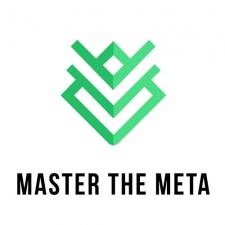Master the Meta is a free newsletter focused on analysing the business strategy of the gaming industry. MTM and PG.biz have partnered on a weekly column to not only bring you industry moving news, but also short analyses on each. To check out this week’s entire meta, visit www.masterthemeta.com!
A lot has been said about gaming subscriptions over the past couple years - both good and bad - and we should expect the conversation to pick back up again. Even though most companies with gaming subscriptions have so far failed to scale them or made strategic blunders, it’s not game over for subscriptions as a whole. In fact, I expect to see leading subscriptions become both more prominent and respected for their increasing value propositions.
Let’s start with why the narrative is often negative. Obviously, individuals consume games differently than other types of subscription-oriented entertainment - gamers stick with specific games for longer, it’s extremely tough to release a steady stream of AAA hits, publisher subscriptions are overly narrow, and on mobile it’s hard to compete with free-to-play. There are abundant examples of subscriptions that failed to change the status quo
- Apple Arcade faced an uphill battle since day one, but it should’ve executed better. For example, overly focusing on indies meant the service failed to support tentpole franchises that could attract larger audiences.
- Subscriptions like EA Play and Ubisoft+ have a place, but subscriptions around specific publishers will forever be niche.
- Cloud gaming subscriptions like Stadia have underperformed by almost every metric. Slapping old school business models onto this new way of playing games is less interesting than using cloud gaming to unlock new types of gameplay. Plus, the content options remain weak.
All that said, there are bright spots:
- Xbox Game Pass - which hit 15 million subs in September (probably more like 20 million now) - is increasingly impressive. Even though Xbox will sell far fewer consoles than PlayStation, Game Pass is the closest comparison to the Netflix of gaming. Microsoft is heavily investing in new studios, all of whose games will release on Game Pass across Xbox and PC. Even though it takes years to scale up AAA content, Game Pass will capture a far higher ROI on content spend as more people join. Plus, including EA Play as part of Game Pass is a smart move. We can’t overly compare this service to video streaming, but there is a similar game of aggregation at play. Game Pass’s willingness to go cross-platform and cross-publisher means it has the best shot at meaningful scale. And even though the company currently offers heavy discounts, once content has scaled up it will pretty easily be able to raise prices.
- Nintendo has a major opportunity to release a subscription service that provides access to its entire back catalogue. Nintendo is typically slow to things like this, but it’s certainly possible over the next couple years. It’s not as exciting as Game Pass - since it likely wouldn’t include new games - but it can still become a valuable addition to Nintendo’s business.
- It will be interesting to see what PlayStation does over time. PlayStation Plus and PlayStation Now are decent starts, and the company’s focus on high-end exclusives vs wide-ranging options (like HBO vs Netflix) probably means it will continue to differentiate from Xbox’s strategy. There is more than one way to win.
- Lastly, subscriptions can also become more prevalent in-game features. Just like Fortnite is positioning the $11.99/mo Fortnite Crew subscription as a battle pass upsell, I expect other major games to test similar options. Plus, as companies begin to see the positive financial benefits - substantial high margin recurring revenues - it will become a larger priority.
All in all, gaming subscriptions aren’t dead; in fact, they’re just getting started. However, as we move forward, I expect the industry to wisen up, the gap between the winners and losers to dramatically widen, and the biggest winners to become aggregators. Game Pass is the best positioned, but we’ll see how the tides turn as the market evolves.
Master the Meta is a newsletter focused on analysing the business strategy of the gaming industry. It is run by Aaron Bush and Abhimanyu Kumar. To receive future editions in your inbox sign up here:






















